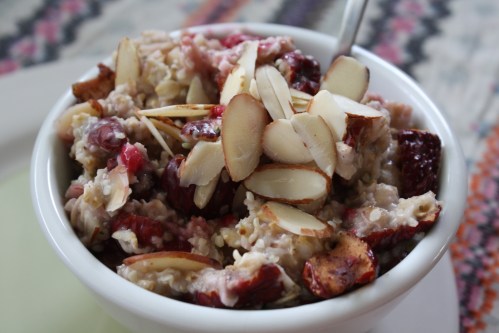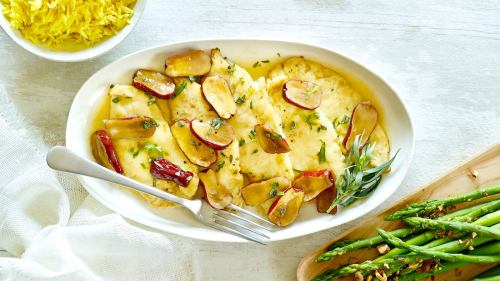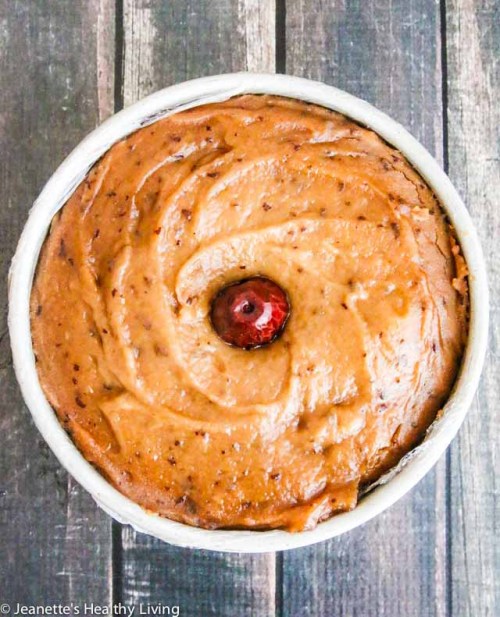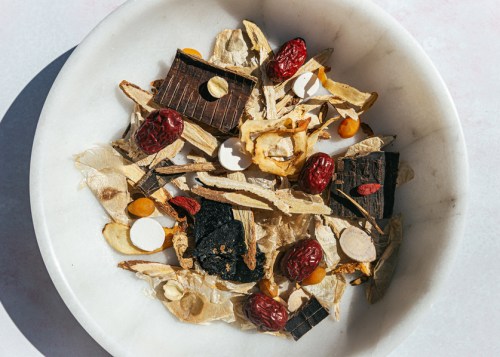Our editors independently select these products. Making a purchase through our links may earn Well+Good a commission
If you grew up in America, odds are good that when you think of jujubes, the super sticky gummy candies that used to be a chore to chew come to mind. But those who grew up in other parts of the world—like China and India, for example—are more likely to think of the fresh jujube fruit which, unlike its namesake confection, is a natural ingredient.
Experts in This Article
Donna Hernandez, DOAM, LAc is an acupuncturist and TCM practitioner at the Yinova Center in New York City.
Jacqueline Gabardy is an LA-based acupuncturist, herbalist, and holistic fertility coach.
Jeiran Lashai, DOAM, LAc, is an LA-based acupuncturist and TCM practitioner specializing in fertility.
registered dietitian and nutritionist
Jujube fruits are native to several parts of the world, and there are about 40 species globally. The bulk are found in China, however, where jujubes have been cultivated for thousands of years. This is in part due to their many purported (and now scientifically-supported) medicinal benefits. “Jujubes have become a staple since the inception of Chinese medicine,” says board-certified herbalist Donna R. Hernandez, LAc, who practices at The Yinova Center in New York City.
They are also known as Chinese dates, though acupuncturist Jeiran Lashai, DAOM, LAc notes that they are different than the typical medjool dates with which you might be more familiar. “They are not as sweet and look very different,” she says. “When jujube fruits are fresh they are kind of a reddish mahogany with greenish spots. When they are dried, they are a shriveled mahogany hue. Jujubes don’t have that soft skin or squishy-ness of a typical date that you use for baking and dessert.”
What does jujube fruit taste like?
Lashai describes the jujube flavor as lightly sweet, and notes that while they don’t taste like an apricot, the sweetness level is comparable. This is because jujube fruits have a bland to sour taste when they aren’t quite ripe. They’re best eaten when the color is somewhere between greenish-yellow and red. Like most fruits, jujubes are sweetest when dried; when fresh, they taste (and feel) somewhat more like an apple.
Curious as to why, specifically, you might want to seek them out, when there are plenty of other fruits more readily available to you? Keep reading for more details as to their nutritional value and specific medicinal uses.
Jujube fruit benefits
Jujubes are a healthful food for several reasons. For starters, they’re especially high in vitamin C, says Keri Gans, MS, RDN, author of The Small Change Diet. “Vitamin C has antioxidant properties which may help prevent against certain cancers, decrease the risk for heart disease, and boost immune health,” Gans notes.
They’re also high in fiber. “This may help alleviate constipation, control blood sugars, and aid in gut health,” Gans explains.
Importantly, jujubes are also rich in bioactive compounds such as phenolic acids, flavonoids, and more, which lend the fruit substantial antioxidant and anti-inflammatory properties that can be preventative of chronic disease. These compounds have also been shown to increase sleep time and quality—more on this below.
Overall, the nutritional profile for a dried whole jujube fruit looks as follows (with a more detailed look here):
Calories: 267Protein: 5 gFat: 1.7 gDietary Fiber: 6.7 gCalcium: 66.6 mgIron: 5 mgPotassium: 250 mgVitamin C: 217 mg (per 100g of dried jujube fruit)
Medicinal uses, according to Traditional Chinese Medicine (TCM) and newer science
Jujube for sleep, stress, and anxiety
As noted, jujube fruits have been utilized in Chinese medicine for hundreds of centuries, and Lashai says they’ve been primarily used to calm the mind and help with mental challenges such as depression, anxiety, and insomnia. “There are many studies recently that reinforce [the jujube fruit’s] ability to aid in sleep and stress through a neuroprotective effect,” she says. In fact, one study showed that two phytochemicals extracted from the jujube had sedative effects on mice.
Hernandez clarifies that it’s jujube seeds, specifically, that are utilized for this purpose. “We use them to help people who are dealing with anxiety or insomnia, and things like irritability and night sweats,” she says.
Digestive benefits
Jujube has long been used to benefit gastrointestinal health as well. “In Chinese medicine, we say it tonifies the spleen, which is the center of digestion,” says Jacqueline Gabardy, acupuncturist, herbalist, and holistic fertility coach.
Science again supports this use. Research has shown, for example, that jujube extract has protective effects against ulcers, says Lashai. “So if you think about how some food and drinks like tomatoes or alcohol might be harsher for someone with an ulcer to digest, jujube has been shown to protect the gastric mucosa,” she says. It’s also been shown to speed up digestion and improve constipation.
Jujube is also particularly helpful when mixed into herbal formulas because it makes the other herbs included more easily digestible. “It helps harmonize a formula because it protects the spleen and stomach,” Lashai says. And Gabardy further notes that it’s often coupled with ginger for these purposes. “That pair is found in a lot of formulas,” she says.
Because of these digestive benefits, Hernandez says jujube fruit can be beneficial for toddlers to eat when they’re just starting out with solid foods. “It’s good to introduce a small piece to help tonify their digestive system,” she says.
Increased energy
Jujube is also used in TCM more abstractly to tonify (strengthen or tone) qi (life force or energy) and nourish blood. “When a patient is feeling weak or has shortness of breath or overall lassitude, the jujube fruit helps to reinforce energy,” Hernandez says. “Most importantly, it helps to support our blood, and the meridians that deal with blood.” For this reason, she says, it may be prescribed by an herbalist postpartum. “There’s a lot of prolapse that tends to happen postpartum, and jujube is helpful in holding things up and to making sure the blood is absorbing properly,” Hernandez says.
How to eat jujubes
In TCM, jujube fruits are typically dried, crushed, and put into a formula—either a powder, tincture, or pill form. You can buy jujube extract, too.
But you can also just consume jujubes as you would any other fruit. “The most common way to eat jujube fruit would be as a simply as a snack on its own,” says Gans. You can eat them fresh like an apple or dried like a Medjool date. “You just have to eat around the seed inside,” Gabardy notes.
Jujubes can be utilized in your kitchen in a variety of ways, too. “They can also can be sliced into salads, added to yogurt or hot cereal, cooked and used in sauces and desserts, or made into jam,” says Gans. And according to Gabardy, they’re also often used in cooking broths, soups, porridges, and stewed vegetables.
Fresh jujubes can typically be sourced through farmers’ markets (primarily in Southern/warm states) or Asian markets. You can find dried jujubes readily available online.
Jujube recipes

This recipe turns dried jujubes, fresh ginger, black sugar (or honey), and water into a comforting beverage that’s both calming and digestively-supportive. “Ginger and jujube tea is a basic tea that’s often used as a warming digestive and immune tonic,” says Gabardy.
2. Jujube, Raspberry & Hemp Seed Oatmeal

While this recipe isn’t exactly revolutionary, it’s a reminder that chopped dried jujubes make a sweet and healthful addition to oatmeal or overnight oats.

Dried jujubes can be used to add sweetness to a savory dish, too, as demoed in this recipe for jujube-topped tarragon chicken.
4. Chinese Jujube Date Sticky Rice Cake

To make this cake, this recipe’s author first created her own jujube date jam, and she likens the flavor of it to that of roasted chestnuts. It’s then folded into the batter of this traditional cake made not of rice but from rice flour.
Oh hi! You look like someone who loves free workouts, discounts for cult-fave wellness brands, and exclusive Well+Good content. Sign up for Well+, our online community of wellness insiders, and unlock your rewards instantly.
Sign Up for Our Daily Newsletter
Get all the latest in wellness, trends, food, fitness, beauty, and more delivered right to your inbox.
Got it, you've been added to our email list.











